-
Product Name
CDC25A Polyclonal Antibody
- Documents
-
Description
Polyclonal antibody to CDC25A
-
Tested applications
IHC, IF
-
Species reactivity
Human, Mouse, Rat
-
Alternative names
CDC25A antibody; CDC25A2 antibody; cell division cycle 25A antibody
-
Isotype
Rabbit IgG
-
Preparation
Antigen: Recombinant fusion protein containing a sequence corresponding to amino acids 235-484 of human CDC25A (NP_963861.1).
-
Clonality
Polyclonal
-
Formulation
PBS with 0.02% sodium azide, 50% glycerol, pH7.3.
-
Storage instructions
Store at -20℃. Avoid freeze / thaw cycles.
-
Applications
IHC 1:50 - 1:200
IF 1:50 - 1:200 -
Validations
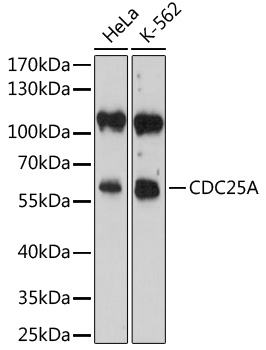
Immunohistochemistry - CDC25A Polyclonal Antibody
Immunohistochemistry of paraffin-embedded rat liver using CDC25A antibody at dilution of 1:100 (40x lens).
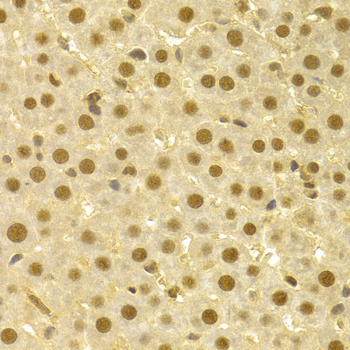
Immunohistochemistry - CDC25A Polyclonal Antibody
Immunohistochemistry of paraffin-embedded rat kidney using CDC25A antibody at dilution of 1:100 (40x lens).
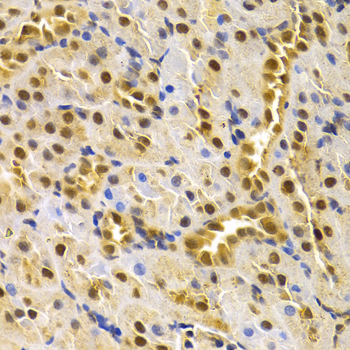
Immunohistochemistry - CDC25A Polyclonal Antibody
Immunohistochemistry of paraffin-embedded rat heart using CDC25A antibody at dilution of 1:100 (40x lens).
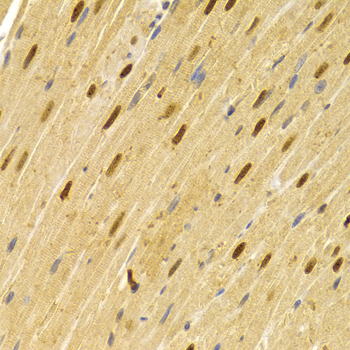
Immunohistochemistry - CDC25A Polyclonal Antibody
Immunohistochemistry of paraffin-embedded human liver injury using CDC25A antibody at dilution of 1:100 (40x lens).
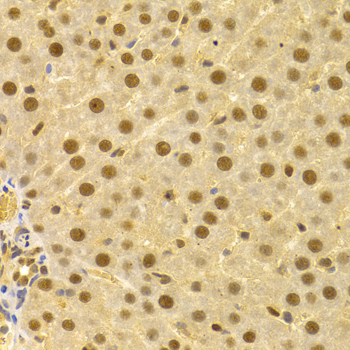
Immunohistochemistry - CDC25A Polyclonal Antibody
Immunohistochemistry of paraffin-embedded mouse kidney using CDC25A antibody at dilution of 1:100 (40x lens).
-
Background
Tyrosine protein phosphatase which functions as a dosage-dependent inducer of mitotic progression. Directly dephosphorylates CDK1 and stimulates its kinase activity. Also dephosphorylates CDK2 in complex with cyclin E, in vitro.
Related Products / Services
Please note: All products are "FOR RESEARCH USE ONLY AND ARE NOT INTENDED FOR DIAGNOSTIC OR THERAPEUTIC USE"
